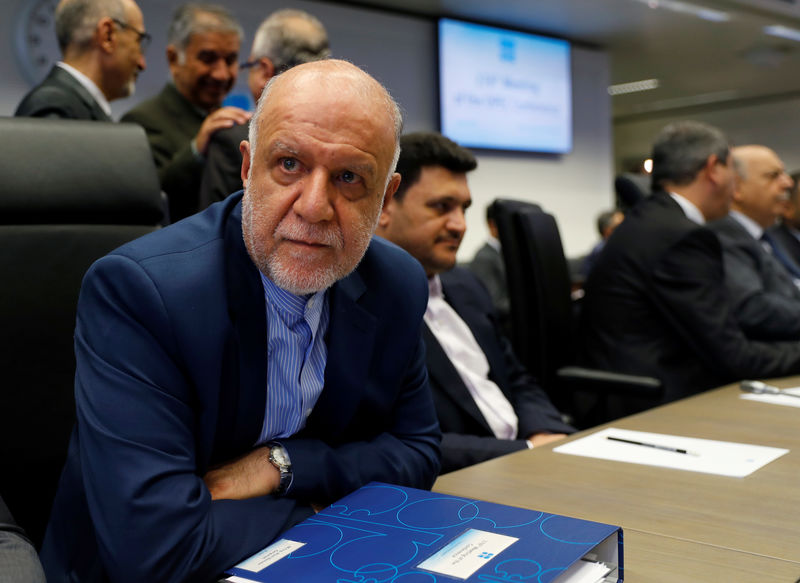By Parisa Hafezi
DUBAI (Reuters) - Iran's Oil Minister Bijan Zanganeh said on Sunday that he was very hopeful of an improvement in the country's crude exports, state TV reported, in spite of tightened U.S. sanctions on Tehran's main source of income.
His comments came as Iran faces further U.S. sanctions after announcing on Sunday it will shortly boost its uranium enrichment above a cap set by a landmark 2015 nuclear deal.
"I am very hopeful that our oil exports will improve," Zanganeh told state TV, adding that the price of oil was not Iran's main concern.
"What matters now for Iran is the amount of oil that we can export," Zanganeh said.
Industry sources told Reuters last month that Iranian crude exports had dropped in June to 300,000 barrels per day (bpd) or less after Washington tightened sanctions on the country's oil exports in May. In April 2018 exports stood at more than 2.5 million bpd.
Zanganeh blamed Iran's longtime foe the United States for destabilising the oil market, saying that Washington was "using the oil as a weapon" to pressure Iran.
"Destabilising the market is in America's interest ... cooperation between the members of (the Organization of the Petroleum Exporting Countries) OPEC and non-OPEC oil producer states will stabilise the market," he said.
Under the nuclear deal between Iran and six powers, most international sanctions against Tehran were lifted in return for limitations on its nuclear work, however Trump last year withdrew from the deal and reimposed sanctions.
Washington tightened sanctions from the start of May, ordering all countries and companies to halt all imports of Iranian oil or be banished from the global financial system. It has also dispatched extra troops to the region to counter what it describes as Iranian threats.
Iran's main demand - in talks with the European parties to the deal and as a precondition to any talks with the United States - is to be allowed to sell its oil at the levels before Washington pulled out.
After the United States threatened to impose sanctions on companies that do business in Iran, France’s Total and China National Petroleum Corp (CNPC) suspended investment in phase 11 of the country's giant South Pars gas field last year.
Zanganeh said that talks are continuing with the Chinese company.
"They have so far failed to start developing the Phase 11 ... China is a friend of Iran and the latter would not opt for severing ties for foot-dragging in projects. We are seeking alternative solutions," Zanganeh said.
China is a signatory of the nuclear deal and has condemned Washington's decision to exit the deal.

Seperately, Zanganeh said Iran eyed 300,000 bpd oil production from its West Karoun oilfields in the southwest of the country.